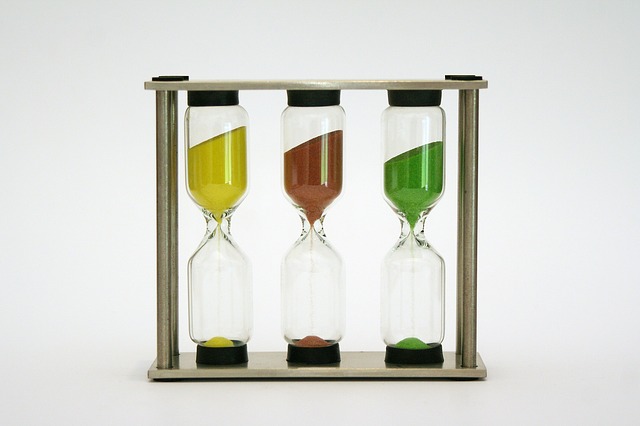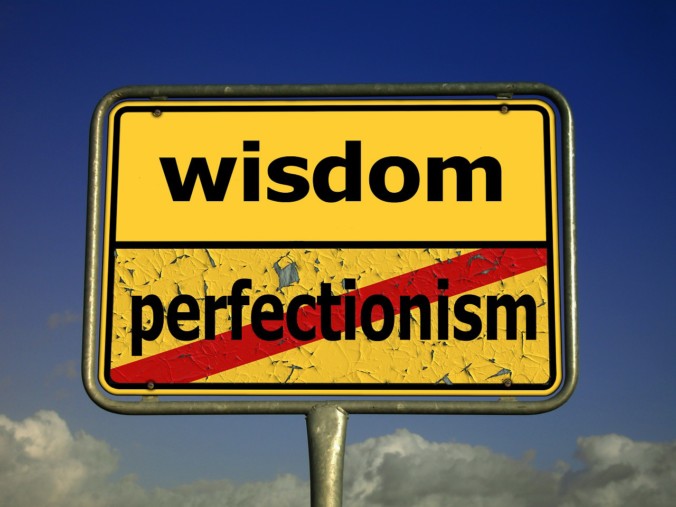“Perfection is the enemy of creativity”
― Bangambiki Habyarimana
I consider myself a perfectionist. And while I think that it has its benefits, being one is a nightmare.
So what is perfectionism? At first glance, you could look at it in the context of self development and think that it actually is quite a beneficial character trait. Basically, everything that you do, you do with quality. You think about your decisions well in advance, and once you take action on them, you make an effort to do extremely well. But there is just one problem – imperfection.
The imperfectionism of perfectionism
Those of you that are also perfectionists, know that in practice, it is extremely difficult to make something perfect. Every time we begin something new, we create an image of what would be the best outcome of that event, and then we make an attempt to reach it. The problem with this lies in its abstractness. We think that we know what we want, but once we have began working on it, we are all over the place. Things rarely go as planned, and we just can’t make the decision to finish something; we want to add more and more to it. As a result, something that should have lasted a day, can easily take a week.
 I believe that perfectionism is not a healthy character trait at all. It is more of a disorder that causes suffering in situations that would otherwise be completely harmless. I can’t even imagine all of those times that I quit something because I felt that I would not be successful or perfect in it. In fact, I know people who consider themselves to be perfectionists, that are scared to start something because they are afraid or know that they won’t succeed in it. Of course, this can be valid for just lazy people as well, but I am still talking about perfectionists here.
I believe that perfectionism is not a healthy character trait at all. It is more of a disorder that causes suffering in situations that would otherwise be completely harmless. I can’t even imagine all of those times that I quit something because I felt that I would not be successful or perfect in it. In fact, I know people who consider themselves to be perfectionists, that are scared to start something because they are afraid or know that they won’t succeed in it. Of course, this can be valid for just lazy people as well, but I am still talking about perfectionists here.
Already the term itself can imply that there is something odd about it. Look at it like this: perfectionism is the idea of making something to be perfect. But how do we know when that something is perfect? Maybe when it is complete? Having the possibility to end up with one of the thousand outcomes, it is often a challenge to decide when something complete.
The lack of rationality..
If you google the word perfectionism, you get the following definition: “refusal to accept any standard short of perfection.” Google is correct about this. When it comes to real perfectionism, it will either be perfect, or won’t exist at all. Like I said already, as soon as we come to the hypothetical end of something, we are going to try to improve it even further. That is great when you are self-actualising, trying to always increase the quality of your life and the things you do, but when it becomes an obsession, it turns into a nightmare.
Sometimes perfectionism causes me to keep doing things that don’t make sense anymore. For example, I know that a certain strategy in my workout scheme is not working at all for me. But because I have seen somebody else get good results from it, I will keep doing it for as long as I need to. Then time passes, but no significant results appear. I know I should have stopped already, but I feel that I have gone too far to stop now. And at the same time I am afraid to try something new, to experiment and see what may work for me better, simply because I am afraid that it won’t work – it is a vicious circle really. It can sometimes feel somewhat psychotic. I have written already once about the importance of being able to know when to stop, and when to keep on trying.
Painful thoughts
So what is the outcome of all of this? Well, if you are anything like me, then you probably get super frustrated with not being able to make something perfect. You keep trying and trying, and you just can’t seem to get what you wanted. This is the point where dissatisfaction kicks in, after which frustration, stress and even anger follow. As another example, I knew a person was really into perfectionism. He would often try repair something, such as a TV, and whenever it didn’t go as planned, his brain would reach that “ boiling point” of not being able to do it perfectly, and he would just slam and kick the thing, until fully broken. This way he would make sure that it wouldn’t bother him ever again. Actually, now when I think of it, maybe he just needed some anger management lessons. 🙂
So what can be done about it?
Like I said, perfectionism is often the cause for not taking action on something great in life. The fear of not being good enough for it just scares us away. For anyone on the path of self-development, these types of thoughts are destructive! The idea is to try to improve in all ares of life, to be as awesome as possible. In this case, however, we are driven by fear, which prevents us from achieving it. And if we do decide to make an attempt, there is a good chance that we will either quit too soon, or that we will be extremely stressed out by the idea of constantly making mistakes.
There is no perfect…
If you “suffer” from perfectionism, the first thing to do is to understand that there is no perfect.
If you have the all-or-nothing mentality, and you just can’t handle the idea of something not being prefect, force yourself to realise that perfection does not exist! You have to recondition your mind daily into believing that perfection does not exist, and that it is completely ok not to be perfect. You have to remind yourself that, by not being perfect and making mistakes, you can learn something new and keep progressing forward, as opposed to spending needlessly much time on one single thing.
Please understand that while perfection allows you to take things seriously and makes you do extremely well, it also obligates you to take seriously your failures that in no way should be handled like that. By focusing too much on the goal, we are missing out on the beauty of the whole process. Instead, we have a stressful experience with the constant feeling of something being unfinished or undone. You have to learn to enjoy what you do, and to understand that it is not perfection that we should strive to achieve, but rather stability and and persistence in our actions, no matter what. If these become our focus, then true success is inevitable.
Finally, keep in mind that you can always come back and fix the things that you really need to.
Excellence over perfectionism
Don’t reach for perfectionism, but rather for excellence. The difference is that with one concept we are refusing to take any standard other than perfect, but with the other we are trying to become better. Going back to the gym example, with perfectionism we may be doing one thing unnecessarily and pointlessly long, only for the sake of it being perfect, while with excellence, we are doing the right thing and what is best for us. In the context of excellence, we have the capacity to analyse all of our actions in a an objective way, and to make smart decisions when necessary. Each step can be strategic, and as a consequence, yield better results. Excellence, dear friends, is the true recipe for long-lasting success and a happier life.
Final words..
 Perfectionism is not critical, and even beneficial if awareness is part of the game. By dreaming and hoping for the best, we create a strong impulse towards making our goals a part of our reality. By having a vision of what we want to become, we have more chances of getting there than people who don’t have it. The goal is then to take it seriously, and to be realistic about what we can and what we can’t achieve. By not making unrealistic goals, we minimise the chances of becoming disappointed with the process, which is also crucial.
Perfectionism is not critical, and even beneficial if awareness is part of the game. By dreaming and hoping for the best, we create a strong impulse towards making our goals a part of our reality. By having a vision of what we want to become, we have more chances of getting there than people who don’t have it. The goal is then to take it seriously, and to be realistic about what we can and what we can’t achieve. By not making unrealistic goals, we minimise the chances of becoming disappointed with the process, which is also crucial.
Lastly, I recommend for you to read my posts about taking action and making the right decisions. I am sure you will find something helpful there. Alternatively, you might want to check this book out: How to Be an Imperfectionist: The New Way to Self-Acceptance, Fearless Living, and Freedom from Perfectionism by Stephen Guise.
Thank you for stopping by. Feel free to leave a comment and to share with us your perfectionist experience. 🙂
Thank you for being with us!
Click here to follow us via E-mail!
Click here to follow us on Facebook!
Click here to follow us on YouTube!
Click here to follow us on Instagram!
Click here to follow us on Twitter!


 15 Best Inspirational Movies That Teach to Never Give Up
15 Best Inspirational Movies That Teach to Never Give Up
 50+ Best Self-Help Books That Will Change Your Life Forever
50+ Best Self-Help Books That Will Change Your Life Forever
 Short Motivational Stories of Failure and Success That You Must Know
Short Motivational Stories of Failure and Success That You Must Know
 What to Do When Someone Is Better Than You? – Dealing with Jealousy
What to Do When Someone Is Better Than You? – Dealing with Jealousy
 10 Examples Where the Power of Positive Thinking Kicks Ass!
10 Examples Where the Power of Positive Thinking Kicks Ass!

October 21, 2016 at 09:26
Hopefully those hints from this post will work with me. Suffering from that “desease” from time to time
October 21, 2016 at 11:38
As long as you are aware of your thoughts, you will do just fine… Thanks for stopping by! 🙂